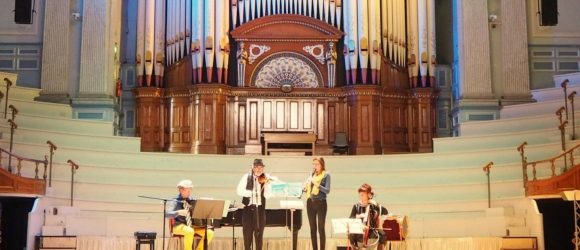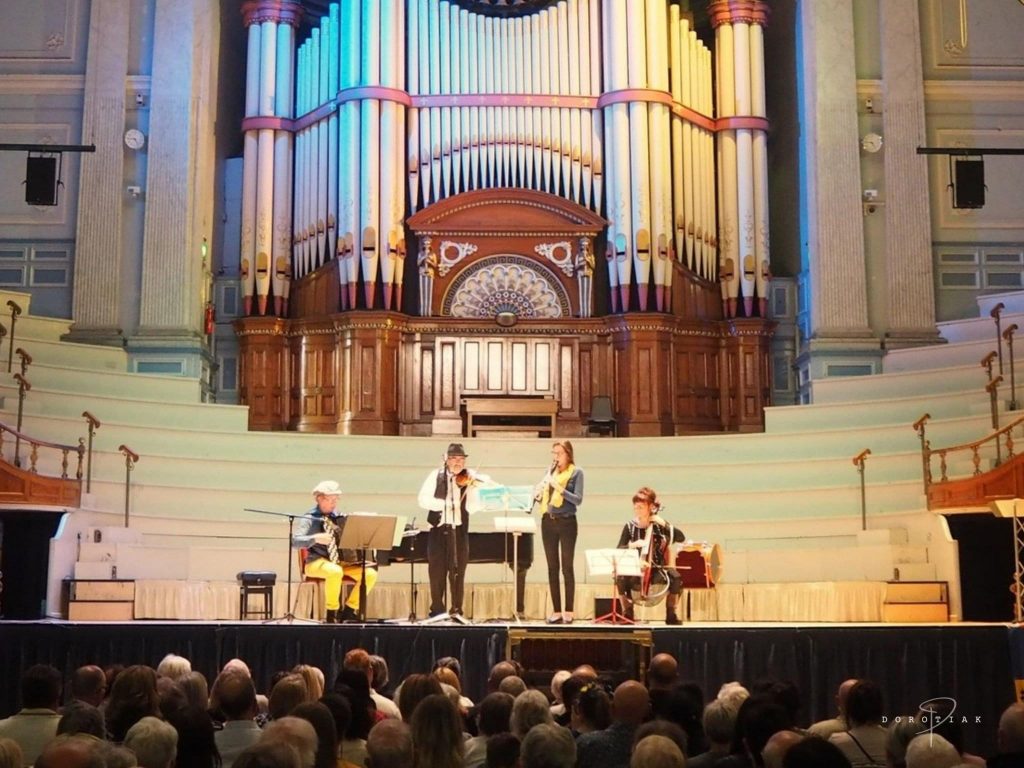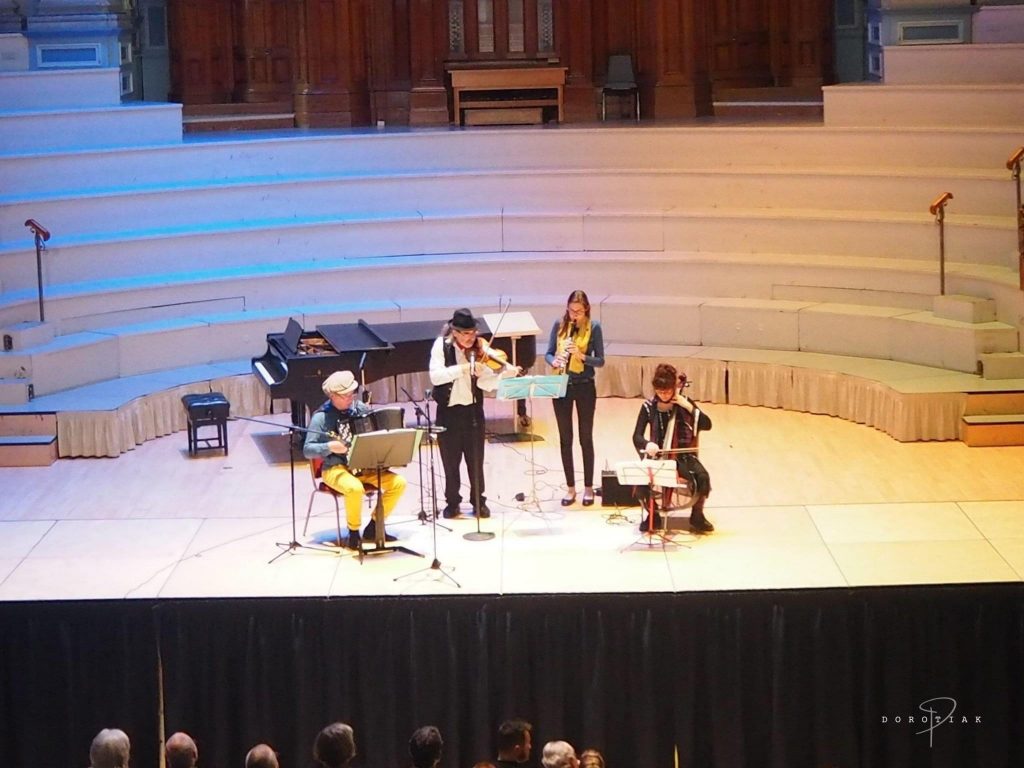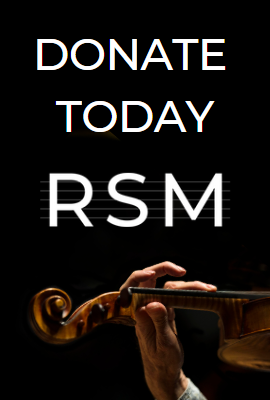RSM People: Nigel Waterhouse

Having spent decades bringing attention to the accordion, Nigel Waterhouse began to suffer hearing loss, which was made worse by several well-meaning attempts to help before a specialist stepped in. Find out how RSM has helped fund Nigel’s new hearing aids and what difference they have made to his sound world.

Career in brief
I played accordion as a child, but when I was young it wasn’t really accepted in the classical music world. It was an outside instrument, but I was aware there was repertoire that was interesting, good composers were writing for the instrument. But I struggled to get a really good teacher. When I left school, I didn’t really know what I wanted to do, but when I was about 20, I met a good teacher from London who gave me some lessons and encouraged me and said I can make a career in music, I have the skills to do that. Then I did a music degree at Sheffield University, with a foundation year at Leeds College of Music. I was only the second person in Britain to choose accordion, following Mario Conway in Cardiff. Before I applied to universities, I wrote to them to see what their attitude towards accordion would be. It was either really positive or really negative.
In the third year, I met a teacher and performer called Owen Murray who had studied in Denmark with Morgans Elegard, the preminent internationally renowned player at the time. He encouraged me to swap to the button accordion system because a lot of contemporary music was being written for that type of accordion. There’s a span of almost three octaves under the hand, which is impossible on the more traditional piano keyboard. I thought it was now or never, because once I had finished university and was no longer on a grant, I needed to earn money and wouldn’t have time to learn that system. It has given me the flexibility to teach both types of accordion.
From there, it was difficult because accordion was still an outsider instrument. I did all kinds of bits of teaching, bits of performing and ticked along. I went to Germany and lived there for a few years, mostly doing gigs and little things. When I came back to England, I immediately got a job at the Crucible Theatre in Sheffield. There was a play with an on-stage band. Seven years previously, just before I had moved to Germany, I had seen a production of Cabaret at the Crucible, which featured an accordion player, so I offered them my services. They told me it was an outside production, but took my details in case they were ever putting anything on. By sheer chance, having been away in Germany for seven years, I get back to England and the following week I get a call from them.
That then started a whole series of theatre work, as well as a lot of work at that time with the teacher who taught me the button accordion. He was trying to establish himself as well, fighting to get the accordion recognised and accepted. He is now Professor of Accordion at the Royal Academy in London. The accordion world was quite traditional, there was a lot of resistance to new repertoire. Instead of seeing it as an opportunity, they saw it as a threat. Through connections, I started to get more and more work, with Opera North, Hallé Orchestra, so for a period I did quite a lot of orchestral work. Everything goes in phases.
This was followed by more theatre work, working with the same companies on several occasions. Through that, I started writing more music for theatre, which I would then perform. Because I worked with the same companies quite regularly, I got quite bored just sitting at the side of the stage playing music, so I got involved doing a bit of acting. I’d seen so many actors working, the whole rehearsal process, the different techniques they used, so I learnt it through osmosis.
Teaching wise, I’ve taught at Leeds College of Music, Chetham’s in Manchester, and Ampleforth College, among others.
Britain is behind the rest of Europe and the rest of the world when it comes to accordion. Having spent time in Germany, all the music schools there have an accordion department, and the repertoire that they have on the syllabus is fantastic and broad.
The beginnings of trouble
I was aware a couple of years ago that I had slight hearing loss. In conversation S’s and T’s weren’t so clear. I went to my GP, who said I had wax in my ears. I was always aware as a musician that I’ve got to look after my ears and I’ve always done that. I’ve worn earplugs if I’ve been in a noisy environment. The GP at that time wouldn’t do any ear cleaning so I went to Specsavers, the young woman said there was no wax, I just needed hearing aids. I went to another doctor, who said there was wax, so I was constantly getting different answers.
After about a year, I was aware that my hearing was getting worse. I went to a private clinic that did ear wax removal with micro suction. Having read about it, I knew that micro suction was a safer option. When I arrived, the nurse said there was too much wax and they would need to syringe the ears first before they could do the micro suction. But I knew that I just wanted to be able to hear again, so I let them do it. On reflection, I should have said no. It’s easy to say it now with hindsight! After the first session, my hearing was a little bit better, but I still had a feeling there was wax in my ears. So, I went back and they did the procedure again and as I left I had to make a phonecall, and I became aware that in my left ear the whole sound world was really strange. Instead of hearing clear tones, there was a horrible buzzing sound at certain frequencies. Really frightening.
I went back to the doctors and for a period of three or four months, I went round in circles of no one knowing what it was. One doctor who said it was an ear infection, gave me antibiotics that didn’t do any good. Then I did a swab and found out it was a fungal infection in one ear and was prescribed drops for that. The chemist didn’t have any in stock though, so the doctor changed the prescription and made a mistake, so I ended up with antibiotics again. In the end, the infection cleared up but the hearing didn’t get any better.
I was eventually referred to ENT in Halifax and the specialist was a keen cellist and really into music, so I thought I was finally going to get somewhere. Unfortunately, it was just a waste of time. All he wanted to do was talk about music and just waved off my symptoms as age-related tinnitus. Dismissed it. He looked in my ears and I didn’t realise what he was doing but he actually did micro suction in the right ear and triggered the same problem I had in the left ear. I came away from ENT perhaps 20 times worse than I had gone in. After the appointment I walked into a cafe and I was aware that I couldn’t hear people talking on the next table, the whole world was muffled. When I got home and started playing accordion, one reed sounded awful, like a C and C# at the same time. I was just despairing; I didn’t know what to do.
I’ve done three gigs since the problem started and one was awful, one was horrendous and one wasn’t bad. The ambient sound going on the background was awful for me. At one point, the violinist was playing very high notes which I couldn’t hear. I could see him playing in front of me but it was just completely silent.

Seeking expert help
In the end, I rang the MU to see if they knew of any hearing specialists I could go to, which of course, I should have done long before I had got to that stage. They immediately pointed me to a few places that could help, including RSM. Initially, I tried the Musicians Hearing Health Scheme and went to a specialist in Cheadle who knew immediately what the problem was; the tiny hairs inside my ear had become damaged through age, exposure to noise and some kind of trauma. The micro suction had caused the trauma. He suggested that the only thing would really be able to help now would be hearing aids, which I got two months ago. I have to say, they have improved my life considerably. The specialist said hearing aids on the NHS would help with conversation, so get them by all means, but not with music. It’s called diplocousis and hypocousis, not tinnitus.
Approaching RSM
It was easy. I got all the paperwork together and everyone was really helpful. It wasn’t a battle, I felt like RSM were there to help me pay for the hearing aids. Sometimes it’s a battle. I inevitably got a bit gloomy with everything, it’s been like a grieving process, my enjoyment of music just went. Instead of enjoying it, it became torture, which has been my whole life. So, I was also able to get counselling through Help Musicians as well.
The future
I’m still playing around with the new hearing aids. The two things I noticed immediately, as I was driving home in the car, I noticed that I could hear the car radio clearly for the first time. Then when I got out of the car, I could hear the ambient sound of the world around me. It was wonderful, there was sound again!
I have now done my first proper concert as part of a quartet with violin, cello and clarinet; a fundraiser for Ukraine in Huddersfield Town Hall and it worked very well. It was a very emotional moment for me as it’s something that at one point I would never be able to do again. I’m learning more and more how to cope and what work to do and what to avoid. I’m just so incredibly grateful for the help the RSM and other organisations have given me to resume a career that I feared was over.
For anyone in a similar position, I’d say get help straight away. I remember when I was young, I remember reading the ISM magazine and seeing adverts for these benevolent funds, but I never thought I would need help from them in the future! I don’t know what I would have done without it.
If you, or anyone you know, cannot work due to accident, illness, stress or anxiety, contact RSM for support on [email protected] or 020 7629 6137.




